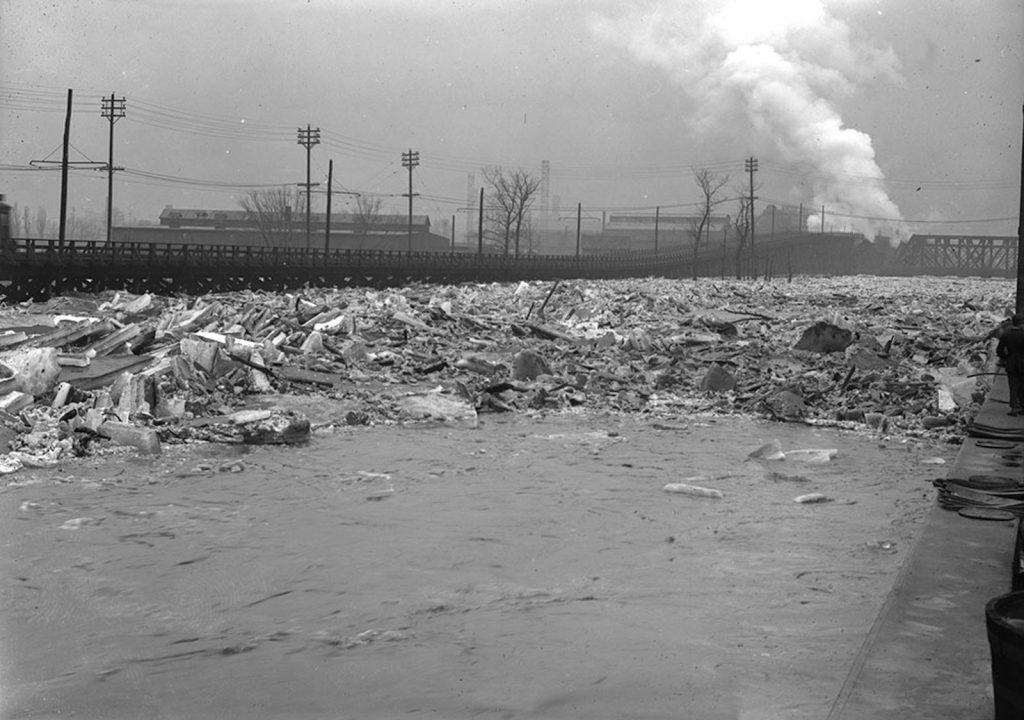Laura Madokoro Receives Early Researcher Awards Program Funding

Carleton University History Professor Laura Madokoro has been awarded funding through the Ontario government’s prestigious Early Researcher Awards Program for her research project titled “Disaster Migration at Home and Abroad: A Transnational History of Canadian Relief Efforts (1900 – present).”
The Early Researcher Awards (ERA) provide funding to new researchers working at publicly funded Ontario research institutions to build a research team. Madokoro’s project is set to receive $140,000, which includes operating costs for a research centre, and is matched with an additional $50,000 from Carleton University.
Madokoro’s research program, The Disaster Lab, explores the history of displacement, disasters and migration. In an innovative turn, the program looks at the history of disaster relief in the Canadian context through a transnational lens, investigating the relationship between domestic relief efforts and the growth of international humanitarianism, beginning with a critical investigation of data from the Canadian Disaster Database (CDD).
“I want very much to contribute, as a historian, to contemporary conversations around climate change and environmental refugees,” says Madokoro.

I think one of the benefits of taking on this historical research at a distance from the pressures and immediacy of disaster relief is that we can ask critical questions about the ideas that inform particular responses and their legacies.
Alongside her, a team of graduate students will be working through the CDD database, maintained by Public Safety Canada, to identify historic incidents where people were displaced as a result of a disaster or as a result of relief efforts.
“We know, for instance, that the Halifax Explosion in 1917 caused the displacement of thousands,” says Madokoro. “What we don’t know for this particular incident, and for many others, is how discussions of relief shaped long-term discussions around displacement, citizenship and relocation.”
Central to the program’s publicly-oriented research, the ideas and activities of state actors (federal, provincial and municipal authorities), non-state actors such as the Canadian Red Cross as well as communities and victims will be explored in tandem.
The program will investigate how migration, as a temporary or permanent solution, has been part of the response to disasters historically and how notions of responsibility vis-a-vis citizens and non-citizens have changed over time. This includes decisions by victims themselves to move on a temporary or more permanent basis.
“For me, this [change over time] is particularly important given the history of settler colonialism in Canada and the manner in which Indigenous peoples have been assisted in times of strife, situations often created or exacerbated by the history of colonialism itself,” she says.
The research team has already started to meet and Madokoro says the graduate students have begun to shape the project in interesting ways.
“Their preliminary, foundational research on the project will shape the questions that the project will ultimately ask of the past and present,” she says.
Madokoro says this project will focus on moving beyond legal definitions of citizenship to understand the substance and lived experience of citizenship and to understand the way that notions of responsibility in times of strife are shaped by a sense of obligation to citizens and non-citizens. She points out, also, how the sense of responsibility towards Indigenous and non-Indigenous peoples has historically been wildly different.
The research team will maintain a public-facing website, which will document the results and also the processes that animate the research on this project. They also plan to work with high school youth on issues of citizenship and responsibility in an era of global climate change, aiming to encourage what Madokoro hopes will be “sustained and informed conversations about relief and responsibility rather than reactive dialogues in times of crisis.”
Madokoro says Carleton University is a wonderful home for this project.
“The work by scholars in the Department of History on the history of humanitarianism, initiatives in the School of Indigenous and Canadian Studies and the interdisciplinary dialogues advanced by the Migration and Diaspora Studies Program and colleagues in Law and Legal Studies, lend themselves to a dynamic exchange about many of the issues connected to this project,” she says.
“I am hoping that students interested in questions of citizenship and migration, disaster and crisis, who are already attracted by the fabulous work happening at Carleton University will consider becoming involved in the work of this project as well.”
Madokoro is one of 53 researchers across Ontario receiving this 15th round of ERA funding. View the full list of funded projects here.